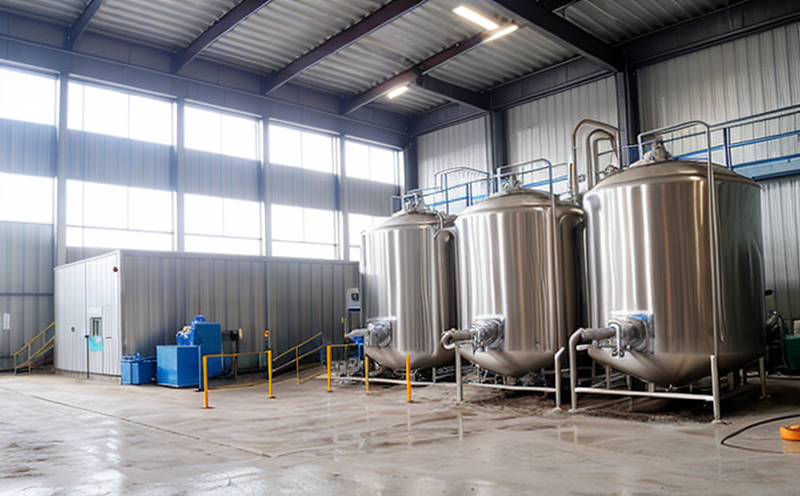ASTM D3972 Sulfate Test in Process Water
The ASTM D3972 sulfate test is a critical analytical procedure used to determine the concentration of sulfate ions (SO₄²⁻) present in industrial process water. This test is essential for ensuring compliance with environmental regulations and maintaining the quality of industrial processes that rely on clean water.
Sulfates are naturally occurring compounds found in many sources of water, but excessive levels can be detrimental to various industries. In industrial settings like pulp and paper manufacturing, food processing, and mining, sulfate contamination can lead to corrosion issues, affect product quality, and cause operational disruptions. Therefore, regular monitoring is crucial for maintaining optimal process conditions.
The ASTM D3972 procedure involves the colorimetric determination of sulfate ions in water samples using a specific reagent system. The test requires precise sample preparation, including dilution if necessary, to ensure accurate results within the linear range of the calibration curve. The method is designed to be robust and applicable across different types of industrial process waters.
The standard specifies that the sulfate concentration should not exceed certain limits, which vary depending on the specific application and industry. For instance, in boiler feedwater, excessive sulfate can lead to scaling and corrosion, whereas in food processing, it could affect product safety. The ASTM D3972 test provides a reliable means of monitoring these concentrations, ensuring that processes remain within acceptable parameters.
Accurate measurement is achieved through the use of a spectrophotometer or colorimeter equipped with a specific wavelength filter. The procedure involves adding a reagent to the sample, allowing it to react, and then measuring the absorbance at the specified wavelength. A calibration curve based on known sulfate standards is used to determine the concentration of sulfate ions in the sample.
The ASTM D3972 test is widely recognized for its simplicity and reliability, making it a popular choice among quality managers and compliance officers responsible for ensuring process water quality. Its straightforward methodology allows for consistent results across different laboratories, which is essential for maintaining regulatory compliance and operational efficiency.
Applied Standards
| Standard | Description |
|---|---|
| ASTM D3972-18 | This standard specifies the procedure for determining the concentration of sulfate in water by colorimetric means. |
Benefits
The ASTM D3972 sulfate test offers several key benefits to industries that rely on high-quality process water. By providing accurate and reliable measurements of sulfate concentration, the test helps companies maintain compliance with environmental regulations. This ensures not only legal adherence but also protects their reputation and reduces the risk of costly fines or operational disruptions.
Regular monitoring using ASTM D3972 allows for early identification of potential issues, enabling proactive interventions to mitigate risks. For instance, if sulfate levels are detected above acceptable limits, corrective actions can be taken before they lead to significant problems such as corrosion or scaling in equipment. This preventive approach enhances the longevity and efficiency of industrial processes.
The test also supports quality assurance by ensuring that water meets the required standards for specific applications. In industries like food processing, where water quality is critical for product safety, ASTM D3972 provides a robust method to verify compliance with internal quality control protocols.
Industry Applications
The ASTM D3972 sulfate test finds application in various industries where process water quality is paramount. Industries that benefit from this testing include pulp and paper manufacturing, food processing, mining, and chemical production.
In pulp and paper manufacturing, excessive sulfate levels can lead to corrosion of boilers and other equipment, which could result in costly downtime. By regularly monitoring sulfate levels using ASTM D3972, companies can prevent these issues and ensure the smooth operation of their facilities.
For food processors, the quality of process water is critical for maintaining product safety and shelf life. ASTM D3972 helps ensure that water used in food processing meets the strictest hygiene standards, reducing the risk of contamination and ensuring compliance with regulatory requirements.
In mining operations, sulfate levels can influence the stability of tailing dams and affect the quality of wastewater discharge. By using ASTM D3972 to monitor sulfate concentrations, mining companies can manage these risks effectively and minimize environmental impacts.





